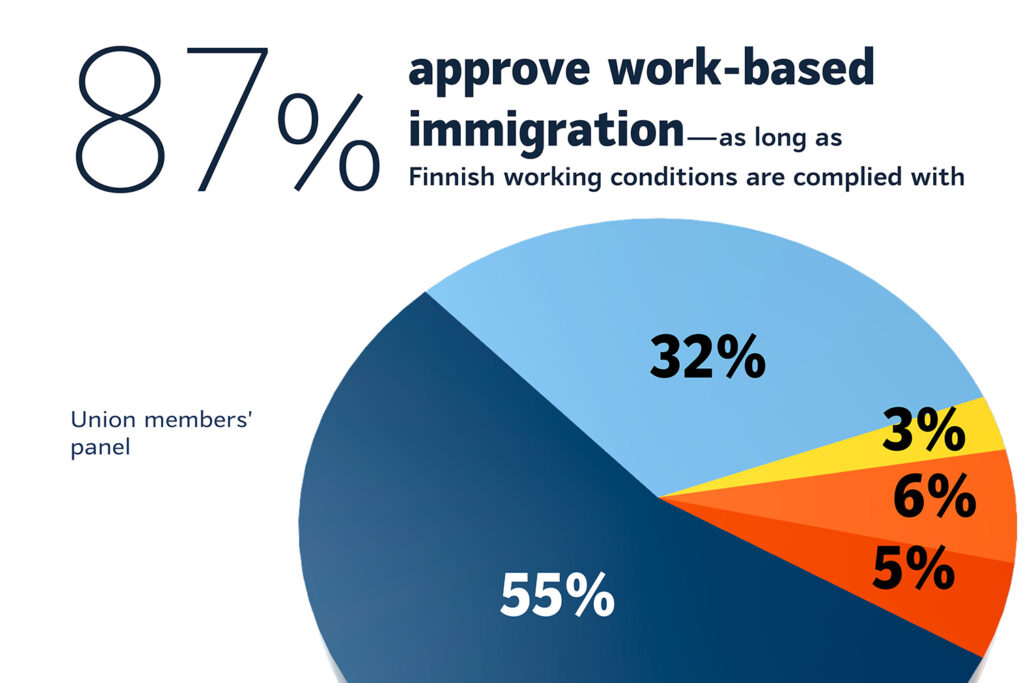In English
Collective agreements for all
Collective agreements cover 89 per cent of wage and salary earners in Finland, according to a study published by the Ministry of Economic Affairs and Employment in December 2019.
13.1.2021
This is very high by international standards. And this remarkable figure is of course due to the well-organised trade union movement, but also due to the legislation of generally binding collective agreements (yleissitova työehtosopimus), sometimes known as generally applicable collective agreements.
There is no legislation for a minimum salary in Finland. Minimum salaries and other terms of work are defined in collective agreements for each sector.
Normally, these collective agreements become generally binding when more than half of the employees of a specific sector are working in companies which are members of the employers’ association. This decision is made by a committee set up by the Ministry of Social Affairs and Health.
After a collective agreement is declared generally binding, every company in the sector must follow and abide by it by law. No company can pay less than what has been written into the collective agreement.
To be sure that everyone has access to the generally binding collective agreements, the Ministry publishes these in both official languages, Finnish and Swedish.
The high coverage of collective agreements is a good thing for all. Companies benefit as they know that no other company can compete unfairly by dumping wages. Employees can freely choose their place of work, as they know that the basic terms of work are guaranteed and also safeguarded by the trade unions.
The generally binding collective agreements mean that in every company union members can select a shop steward who is then empowered to do his or her job as defined in the collective agreements. When there is no collective agreement employees have less room for manoeuvre and the rights of shop steward are usually far more limited.
In Finland, there are about 160 universally binding collective agreements. The Industrial Union has 35 collective agreements, and almost all are generally binding, including all the major ones.
According to the latest figures from 2017, in the private sector an additional 269,000 employees are covered by the collective agreements due to the generally binding nature of these.
It is important to note that the unions also negotiate two other types of collective agreements: normally binding (normaalisitova) agreements are applicable to and followed by companies that are members of the employers’ association that has signed the agreement in question for their branch only. The third kind of agreement is negotiated for single, individual companies.
TEXT HEIKKI JOKINEN



